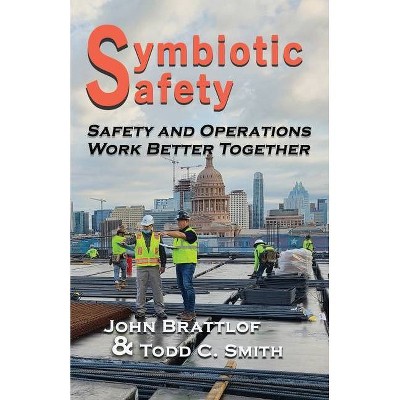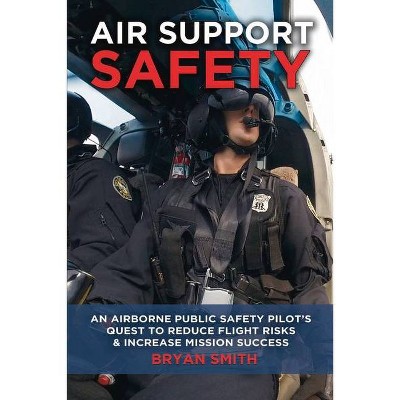Symbiotic Safety - by John Brattlof & Todd C Smith (Paperback)

Similar Products
Products of same category from the store
AllProduct info
<p/><br></br><p><b> Book Synopsis </b></p></br></br><p>Being a Safety Professional is not for the weak. There are numerous competing forces, personalities, and agendas. Intuitively it should be simple. How could it be hard to convince people not to get injured or killed? The reality is that it requires a tremendous amount of leadership and skill to successfully navigate an organization and its employees toward safety excellence. The unskilled will advocate for more resources. The poor leader will blame others. The truly successful safety professionals understand the role of safety extends beyond the prevention of accidents. They use their leadership skill and influence to improve overall operational success. </p><p><br></p><p>Many safety professionals have focused almost all their efforts on compliance monitoring and safety training. Both of these are good ideas. The frustration begins to build because these activities achieve a moderate amount of success, but not a great amount. A frequent limiting factor in many organizations is the safety professional's failure to fully understand how operational efficiency is connected to safety success. </p><p><br></p><p>Many organizations with charismatic safety professional will be lured into dedicating more resources into nonproductive roles to improve safety via more inspections and safety training. This resource dump is touted as the company's increasing commitment to Safety. Unfortunately, more resources thrown at the same problem will have an even smaller impact.</p><p><br></p><p>The key component that is often overlooked by safety professionals is that safety and operations work better together. There should not be an Operations Manual and a separate Safety Manual that would indicate one set of procedures to accomplish what we get paid for and then another set of procedures to help ensure no one gets hurt. Safety professionals should be focused on the organizations' operational side to help blend safety and operations into a homogenous activity. This way, the organization produces its product with one set of procedures that is efficient and safe. Never again should there be friction or opposition between safety and operations. Both should symbiotically help each other improve.</p><p><br></p><p>Achieving this symbiosis requires the modern safety professional to have a tremendous amount of leadership and communication skills. A poor leader or communicator will not be able to bridge the gap between safety and operations. </p><p>Symbiotic Safety will help safety professionals understand the symbiotic relationship between safety and operations and equip them to understand the leadership and communications skills required to blend them successfully.</p>
Price History
Price Archive shows prices from various stores, lets you see history and find the cheapest. There is no actual sale on the website. For all support, inquiry and suggestion messages communication@pricearchive.us




















